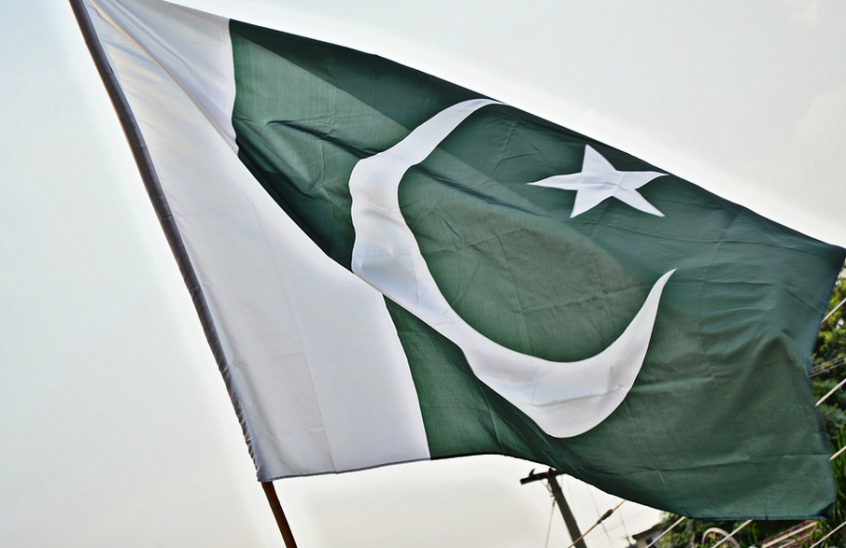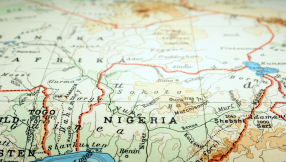Anti-blasphemy protests in Pakistan have highlighted the fragile position of the country's religious minorities, including Christians, World Watch Monitor (WWM) has said.
The group pointed out that Tehreek-e-Labaik Pakistan, the Islamist political party at the heart of the protests, has accused riot police of being dominated by Christians and other religious minorities.
At a press conference on Sunday night, highlighted by WWM, Tehreek-e-Labaik spokesman Muhammad Afzal Qadri said: 'It looks like non-Muslims were conducting the operation. There were very few Muslims. When our respectable leader was asking them not to attack the movement for the finality of the Prophethood [that Muslims must declare they believe Muhammad is the final prophet], very few of them gave back a positive gesture...From this, we inferred that non-Muslims had been deployed [to deal with the protestors]. You know that Christians, Hindus and Ahmadis are part of the police, paramilitary force and law enforcement agencies.'
The chairman of Voice of Minorities Pakistan, Amir Bashir, told World Watch Monitor that Tehreek-e-Labaik Pakistan had 'disgraced minorities serving the country in law enforcement agencies and armed forces'. He added: 'The leadership must extend an apology as Christians have given sacrifices for the country.'
The developments emerged as the charity Open Doors told Christian Today that religious freedom for Christians and others is under 'severe pressure' in Pakistan, where society 'is becoming increasingly Islamic'.
An Open Doors spokesperson said: 'Society in general is becoming increasingly Islamic in Pakistan, the situation is becoming more difficult for Christians. We hear stories of Christians being treated aggressively simply for wearing a cross and have been told that cars with Christian stickers are more likely to be stopped by the police. Open Doors campaigns for freedom of religious belief to be implemented in all countries and campaigns for change in countries such as Pakistan where this freedom is under severe pressure.'
Pakistan is ranked fourth on Open Doors' 2017 World Watch List of the 50 countries where it is most difficult to be a Christian. The newest World Watch List will be out on January 10, 2018.
The blasphemy crisis has seen weeks of violence in Islamabad that left at least seven people dead and hundreds wounded, and protests which spread to major cities across the country including Karachi and Lahore.
The Islamist leader whose group has been clashing violently with Pakistani security forces, leaving Islamabad paralysed for weeks, yesterday finally called off the sit-in protest today after forcing the law minister to resign, which was the group's key demand.
The deadly controversy revolves around a slight amendment to the oath which election candidates must swear. Now, the government has reportedly agreed to take action against those who were responsible for making changes in the oath about finality of prophethood, known as the the Khatm-i-Nabuwwat oath in the Elections Act 2017.
In October it emerged that in the now abandoned revised form of the oath, the words 'I believe' had replaced the originally drafted 'I solemnly swear' and the clause relating to Khatm-e-Naboowat has not been made applicable to non-Muslim candidates.
The government blamed the change on a clerical error and swiftly restored the original format, but now the minister responsible has gone, and the protests have been abandoned. 'On the assurance of the Chief of Army Staff, we are calling off the sit-in,' Khadim Hussain Rizvi told a crowd of around 2,500 demonstrators from the previously obscure Tehreek-i-Labaik Ya Rasool Allah Pakistan, who have occupied a main highway into the capital since November 6.
This followed reports on state media that the law minister, Zahid Hamid, had had his resignation accepted by the prime minister.
The decision by the ruling Pakistan Muslim League-Nawaz (PML-N) to capitulate to the demands of the protesters underlines the influence of extremist religious groups in the nuclear-armed nation. According to Reuters, Islamist parties are unlikely to win a majority in the elections expected next August, but could play a major role.
The oath row follows a series of recent blasphemy and persecution cases against Christians in Pakistan.

In August, a Pakistani Christian boy was sentenced to death after he was arrested and charged with burning pages of the Quran.
Asif Massih, 18, was taken into custody on August 12 after an alleged incident took place in Jam Kayk Chattha village, near the town of Wazirabad, in central Punjab province.
In October, a Christian boy was reportedly beaten to death by police in Pakistan on Monday in an apparent revenge attack after the boy was in a fight with a Muslim classmate who tried to bully him into renouncing Christianity.
That case followed the killing of another Christian student in August, when Sharoon Masih was beaten to death by at least one Muslim classmate during school hours in Punjab's Vehari district.













